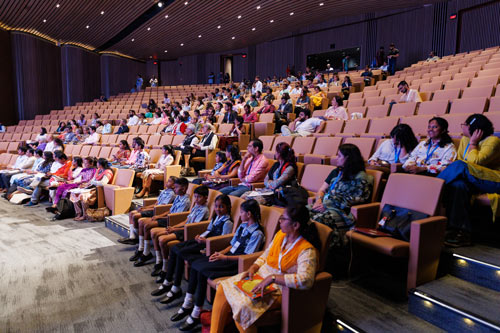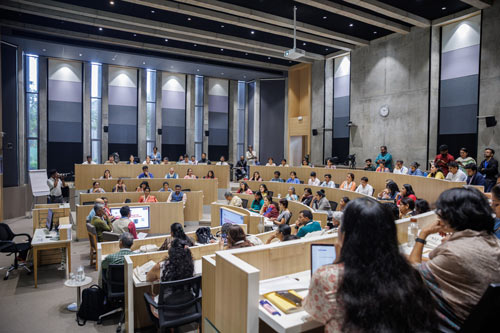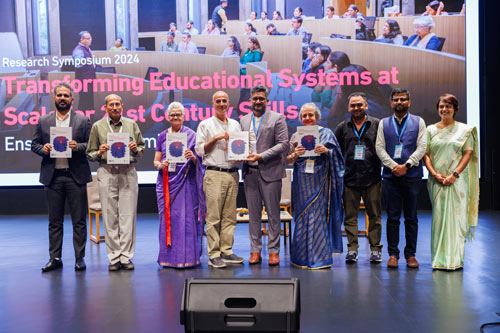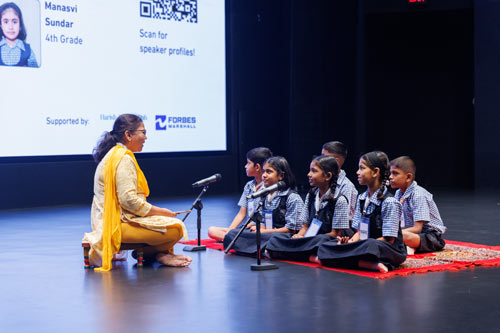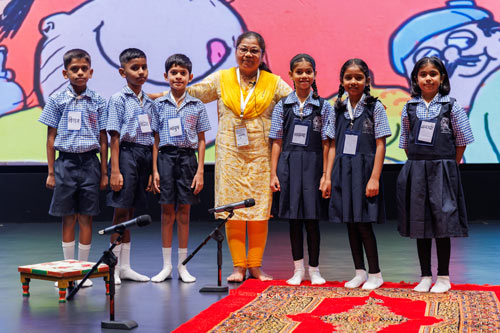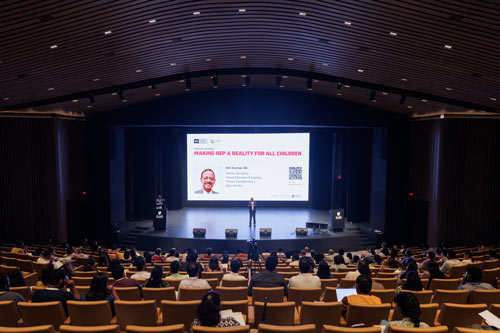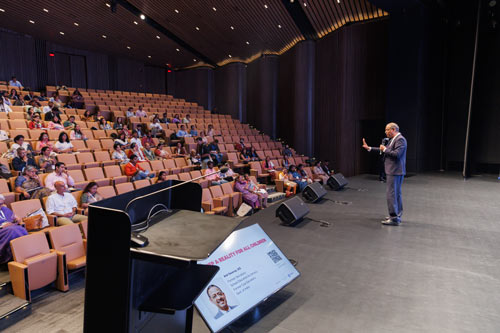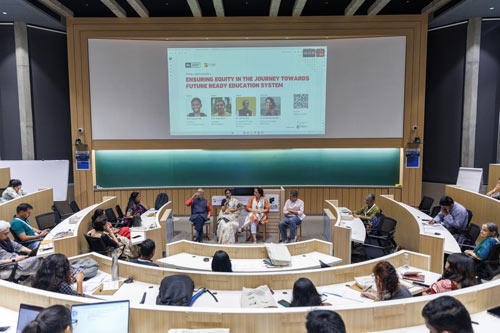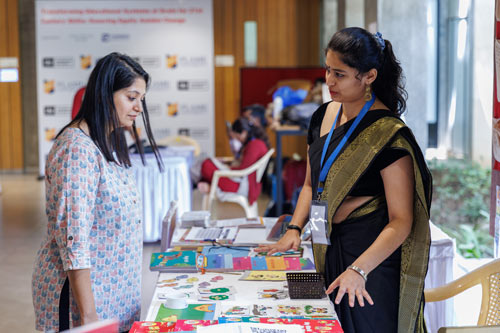FLAME University and Leadership For Equity Host Successful Research Symposium on Education Transformation
September 27 (Friday) & 28 (Saturday) 2024
The four pivotal themes of the symposium that guided the discussions: Foundational Level Learning, with a focus on evidence-based learnings from academia, NGOs, think tanks, and government initiatives; Enhancing 21st Century Skills, including socio-emotional learning across learners' life cycles; Enhancing Bureaucratic Capacity and Governance for effective implementation of NEP-2020 goals; and Strengthening Teacher Education and public institutions like SCERTs and DIETs.
The symposium's success was marked by its ability to attract a wide spectrum of stakeholders from the education ecosystem. Among the attendees were 160+ registered participants, 35+ distinguished guest speakers, and 24 research presenters. The diverse audience included representatives from leading academic institutions (like FLAME University, Azim Premji University, IIM Ahmedabad, and TISS), NGOs, EdTech organizations, and many more. This wide-ranging attendance created a unique environment for cross-sector learning and networking.
The symposium was graced by several distinguished speakers who brought their wealth of experience and insights to the discussions. Anil Swarup, Former Secretary of School Education & Literacy, delivered a keynote address emphasizing the crucial role of teachers in India's educational future. He stated, "Take care of the teacher. For me, that's the most critical part. If we take care of the teacher, I think most of the problems with education will be taken care of."
The symposium featured prominent speakers from education and governance, including Sandhya Rani, Former Education Commissioner of Andhra Pradesh, and Seema Bansal, Vice Chairperson of the Punjab Development Commission, who shared insights on driving large-scale reforms. Current government officials, including Shekhar Singh, Municipal Commissioner of PCMC, and Murali Akunuri, Chairman of the Telangana Education Commission, addressed challenges in implementing policies. The event also benefited from the experience and expertise of Dr. Neha Belsare, former Director of MIEPA, Dr. Navneet Kad, SCERT Punjab, and Sujata Lohokare, Former Deputy Director of SCERT Pune, who contributed to discussions on strengthening teacher training and public institutions.
The symposium facilitated 4 panel discussions, 12 targeted sessions, 3 keynote addresses and offered rich discussions on various aspects of education reform, including evidence-based practices aligned with NEP-2020, methods for measuring the impact of systems change efforts at scale, and the future of education systems in the 21st Century, considering the advent of artificial intelligence and technological advancements.
The event saw the launches of two key reports, “Developing Children’s Scale for Social-Emotional Learning [CHISSEL]” and “Study on Status of Decentralized In-Service Teacher Training [DITT]”. The CHISSEL Report is a project, initiated by Leadership for Equity (LFE) in collaboration with FLAME University, aimed to create a framework and assess SEL competencies among middle school students in Maharashtra. The DITT Report is a comprehensive study that examines the effectiveness and challenges of teacher professional development across various states in India, providing actionable insights to enhance the professional growth of teachers and improve educational outcomes.
The success of this symposium underscores the growing momentum for systemic change in India's education sector and the collective commitment to ensuring equitable access to 21st-century skills for all learners. It is expected to lead to increased collaboration among stakeholders, agglomeration of evidence and best practices on school education reforms, development of policy briefs and position papers, and collaborative research initiatives among participants.
The LFE-FLAME collaboration through this research symposium has acted as a catalyst for co-creating a space for educational system change, bringing together ideas on NEP implementation in school education. As the event concluded, it left participants with a renewed sense of purpose and a shared vision for transforming India's education landscape.
The citation for the report is: Shah, S. S., & Jolad, S. (2024). Study on Developing Children’s Scale for Social-Emotional Learning (CHISSEL) in Government Schools of Maharashtra (Leadership for Equity & FLAME University 2023-24). India: Leadership for Equity.
